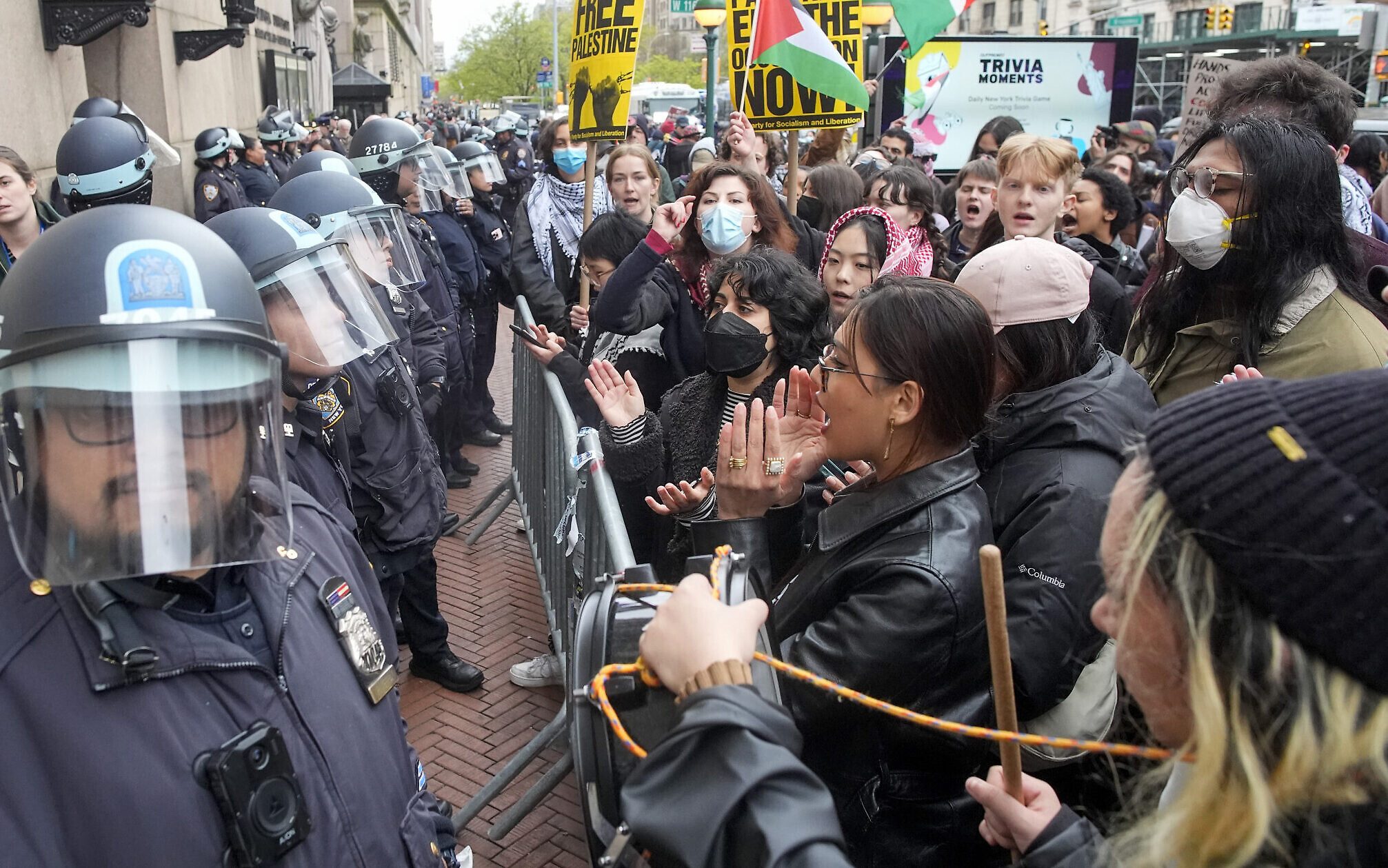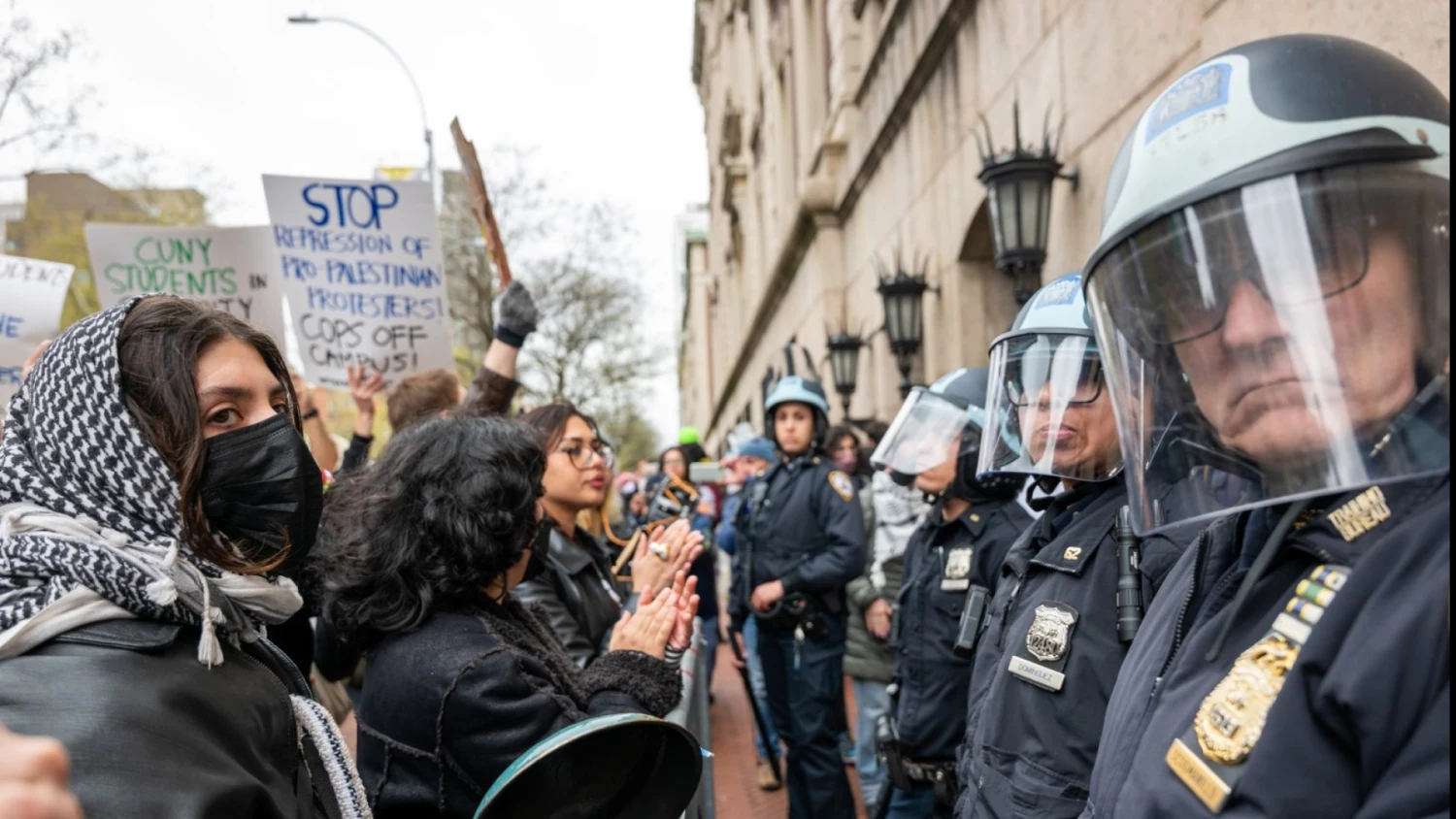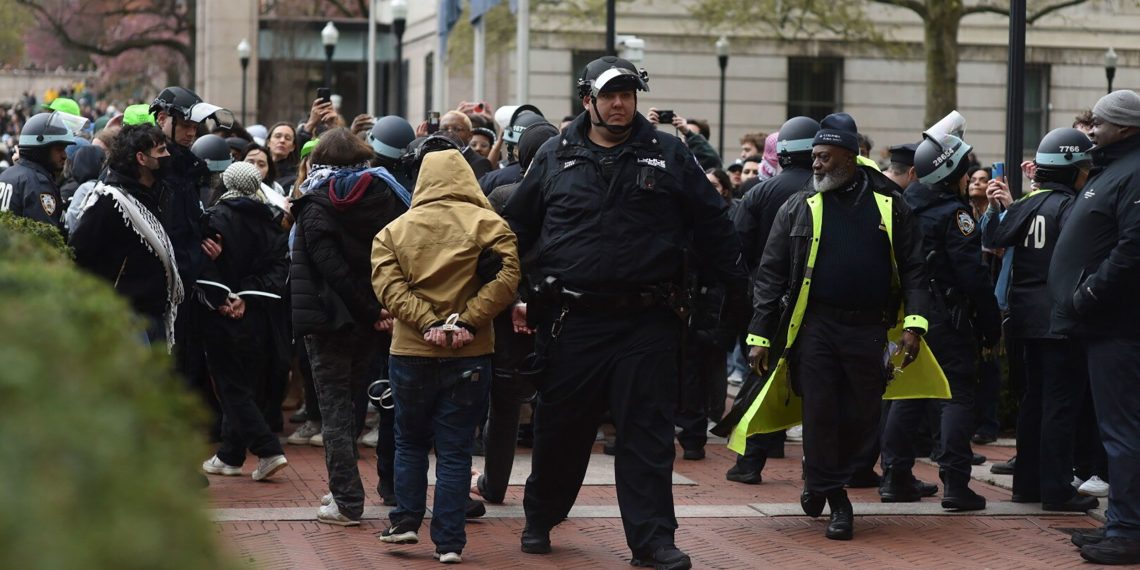New York City law enforcement officers conducted a late-night raid at Columbia University on Tuesday, apprehending numerous pro-Palestinian demonstrators, some of whom had occupied an academic building.
They dismantled a protest encampment that the prestigious Ivy League institution had been trying to remove for nearly a fortnight.
Columbia University President Minouche Shafik, in a letter released shortly after the police action, requested their continued presence on campus until May 17 to maintain order and prevent the re-establishment of encampments.

Within three hours, the campus was cleared, with a police spokesperson confirming “dozens” of arrests.
The police operation commenced around 9 p.m. ET as heavily equipped officers descended upon the elite campus in upper Manhattan, a hub for student rallies denouncing Israel’s Gaza conflict, which has resonated across numerous U.S. educational institutions in recent days.
“We’re clearing it out,” declared the officers as they moved in.
Officers gained access to Hamilton Hall, an academic building that protesters had seized earlier in the day, using a ladder-equipped police vehicle to enter through a second-story window.
As detainees were loaded onto buses with their hands bound behind their backs, protesters outside chanted slogans in solidarity with Palestine while others demanded the release of the arrested students.
Sweda Polat, one of the student negotiators for Columbia University Apartheid Divest, expressed pride in the protesters’ actions, asserting that they posed no danger and calling for police restraint.
Protesters had three demands: divestment from companies supporting Israel, greater financial transparency, and amnesty for disciplined students and faculty.
President Shafik rejected divestment but offered investments in Gaza’s health and education and increased transparency in investment holdings. She accused the occupiers of vandalism and trespassing.

The occupation, initiated with broken windows and a banner renaming Hamilton Hall, was criticized by Mayor Eric Adams and city police officials, who alleged the involvement of “outside agitators.”
Despite assertions of outside influence, student leader Mahmoud Khalil disputed these claims, stating that disruptions on campus were necessary to highlight the plight of Palestinians.
The protests, sparked by recent events in Gaza, have drawn attention to the Israeli-Palestinian conflict and ignited a wave of student activism across the United States, prompting debates over free speech and political affiliations on campuses nationwide.





